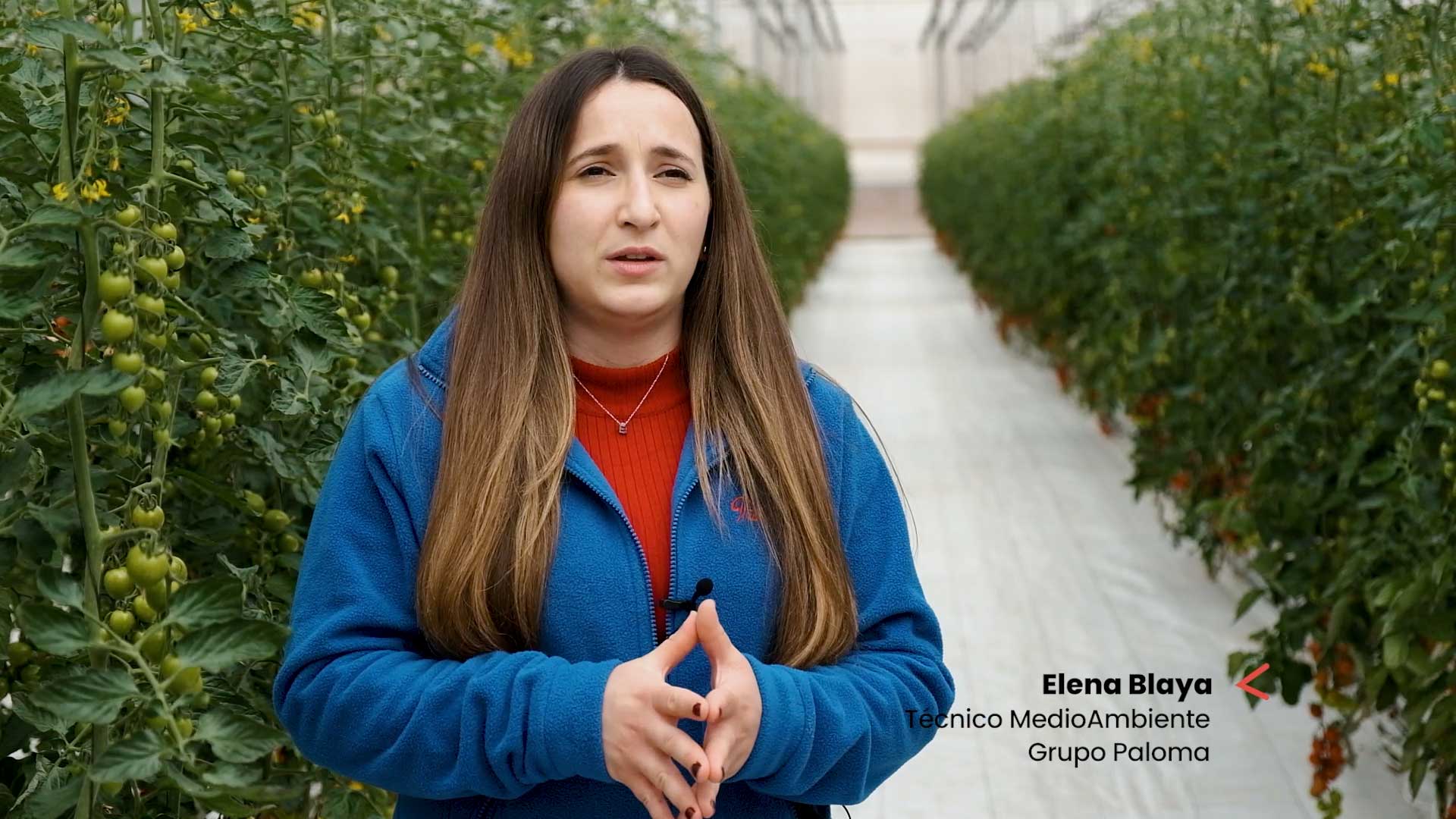NOVAGRIC Projects
Greenhouse project to produce tomatoes with lower water footprint
Last year Novagric carried out a new design, manufacture and construction greenhouses project equipped technologically for tomato crops in the Region of Murcia.
A more digitalised agriculture committed to the environment and effective in the processes was the target of this project when it was carried out. An initiative that is already making its first steps and showing profitability.
The Grupo hortofrutícola Paloma, dedicated to production and marketing of fruits and vegetables, and which sells more than 90% of its production to Europe, has always stood out for its clear commitment to a sustainable development of its crops.
Since 2016 they calculate their water and carbon footprint, to reduce consumption, in addition to being recently certified in the water footprint, which evaluates the impact of the lack of this resource.
For its part, Novagric shares this commitment with sustainability by providing the technologies, technical support, and knowledges to grow a brighter future. A company that was born more than 40 years ago to transform agriculture to more efficient systems and since then has accompanied the most entrepreneur growers in this continuous improvement.
The project has been developed in the Region of Murcia, a river basin with historical problems of water shortage. Aware of the situation, the greenhouse has been equipped with the latest technologies to optimise resources, seeking better climate control and a higher performance in crops work.
“Our main objective is to maintain environmental sustainability, reduce water and energy consumption, and for this we constantly adapt our crops” says Elena Blaya, Environmental Technician at Paloma group.
The project developed by Novagric has a total of 10 hectares, “with an area per module of 2 hectares to make technical and agronomic management compatible with economic profitability” says Juan Pardo, innovation, and greenhouse responsible at Novagric. A project carried out in the pandemic, in which security measures were maximised to meet the expected times of execution, assembly and delivery of the work to begin with the plantation.
J. Pardo details that the most important technical standards that have been followed in the design of these multi-span greenhouses have been for “maximising solar radiation by reducing the number of obstacles at the light entrance to enable plants to perform photosynthesis”.
To contribute to more effective climate management, passive ventilation systems, automatic energy saving screens, temperature and humidity probes, and a climate station have been installed.
David Pépez, group Paloma technic, says that all this technology is controlled with climate and irrigation software, which allows to measure, programme, and analyse all the parameters. “It is known at a technical level that, if you control humidity and have a higher percentage of light you will have a higher production during the winter, which in these latitudes we are now is key.”
Novagric, for its part, offers technical support for automatic climate management, fertigation, and a monitoring of the behaviour of the structure throughout its useful life, emphasises Pardo.
They are currently producing cherry tomato with hydroponic and automatic drip irrigation, of which it is taken a thorough control of drains and fertilization to optimize water consumption and to achieve a zero grey water footprint.
For the control of pests, biological control measures and zero residue products have been chosen with which the use of phytosanitary products is minimized.
The results that are being obtained in this project are impacting on the production and improvement of crops work, allowing to make higher trellising, increase flowering speed, and plant quality.
“The technology they have is much more suited to what we are looking for at the moment, they have greater capacity, we greatly intensified the production, and we got to have up to 20% more yields compared to traditional greenhouses” says Antonio Robles, Paloma group Production technician.
Although the next few years present a great climate and productive challenge and a very changing economic reality, these new initiatives allow us to continue improving to be able to achieve a profitable and sustainable agriculture.
“From the Paloma Horticultural Group, we are firmly committed to Innovation and Research, so we believe that the only way to achieve safe and top-quality food production is to invest in latest technology projects that allow us to maximize production with the minimum use of resources, minimizing our environmental footprints” concludes Ana Hernández, R&D&i Director.
Some pictures of our project
Project details
Type
Without this information for this Project
Location
Without this information for this Project
Cultivation
Without this information for this Project
Surface
Without this information for this Project
With an area per module of 2 hectares to make technical and agronomic management compatible with economic profitability




